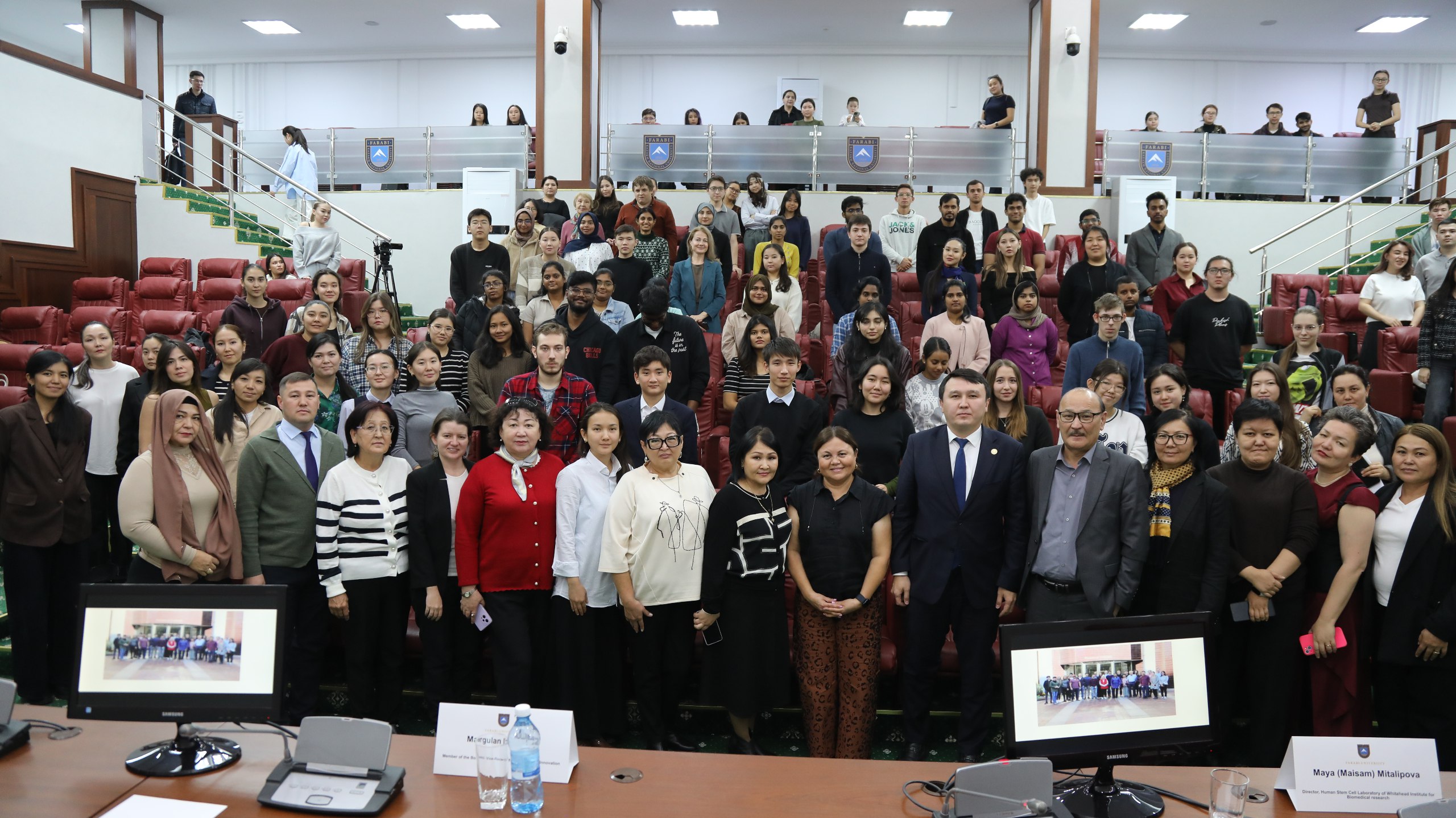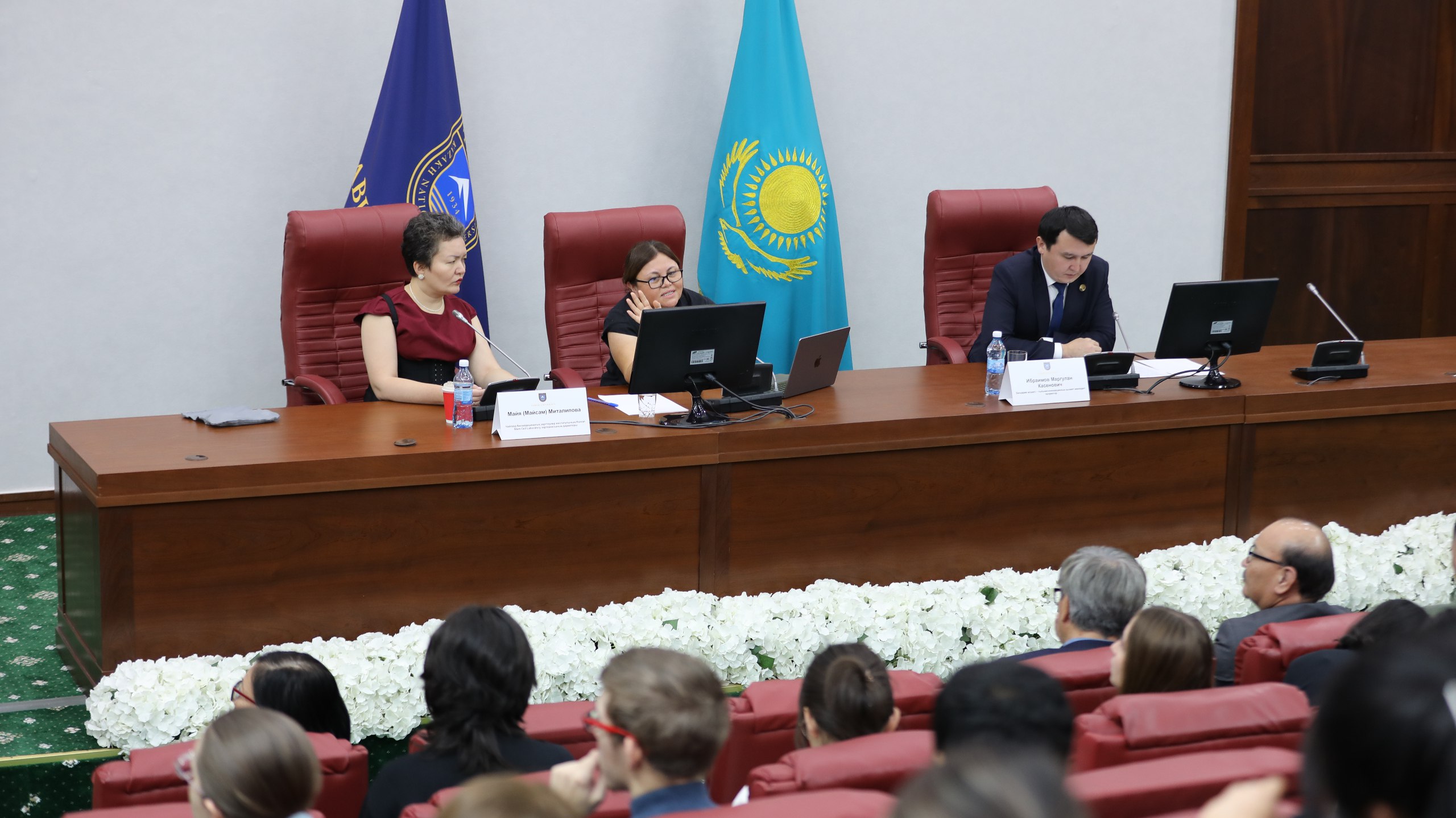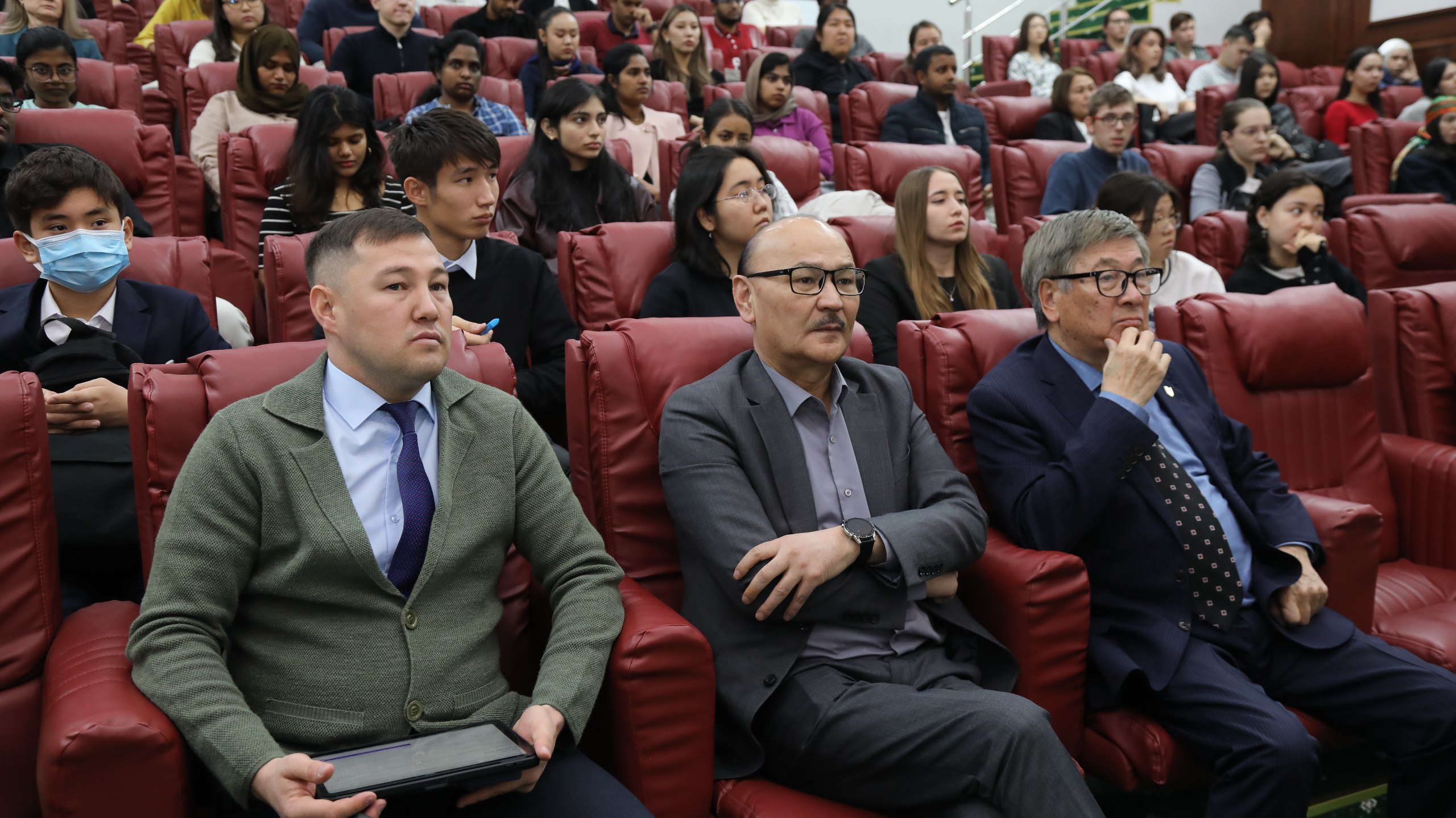- Main
- News
- MIT Stem Cell Research Leader Dr. Maja Mitalipova Delivers a Scientific Lecture at KazNU: Stem Cell Therapy, BBB Models, and Neurodegeneration Research
MIT Stem Cell Research Leader Dr. Maja Mitalipova Delivers a Scientific Lecture at KazNU: Stem Cell Therapy, BBB Models, and Neurodegeneration Research

On November 12, 2025, Al-Farabi Kazakh National University hosted a scientific lecture delivered by internationally renowned biomedical researcher, native of Almaty region, and Director of the Human Stem Cell Laboratory at the Whitehead Institute for Biomedical Research (Massachusetts Institute of Technology, MIT, USA), Dr. Maja (Maisam) Mitalipova.

The lecture was titled “An Isogenic Self-Organizing Blood–Brain Barrier Model to Study Vascular Dysregulation in Alzheimer’s Disease.” During the event, Dr. Mitalipova presented her scientific journey from Kazakhstan to leading global biomedical research centers and shared insights into the development and application of human embryonic and induced pluripotent stem cell (iPS) models for studying neurodegenerative diseases. Dr. Mitalipova earned her bachelor’s and master’s degrees in genetics and embryology from the Timiryazev Agricultural Academy in Moscow and later completed her Ph.D. in embryology and genetics at the Russian Academy of Medical Sciences. She conducted pioneering research in embryology and somatic cell cloning under Professor Neal First at the University of Wisconsin–Madison, contributing to early breakthroughs in mammalian cloning. While working at BresaGen Inc. (USA), she derived four human embryonic stem cell lines that were approved by the U.S. National Institutes of Health (NIH) in 2021, becoming the first federally funded hESC lines in the United States.
Since 2005, Dr. Mitalipova has led the Human Stem Cell Laboratory at MIT’s Whitehead Institute, collaborating with Professor Rudolf Jaenisch on the development of embryonic and induced pluripotent stem cell models that have advanced understanding of Rett syndrome, Alzheimer’s disease, Parkinson’s disease, and other genetic disorders. She has derived more than 20 embryonic stem cell lines and reprogrammed over 100 iPS cell lines from patients and healthy donors. Her lecture at KazNU highlighted the biology of the blood–brain barrier, mechanisms of vascular dysregulation in Alzheimer’s disease, the use of self-organizing 3D models, and the transformative potential of stem cell technologies in modern biomedical research.
She has 40 publications indexed in Scopus, with more than 8,500 citations. Her Scopus h-index is 26. From 2002 to 2004, she served as Senior Editor of the “Embryonic Stem Cells” section at the International Embryology Society Meeting. Since 2019, she has been a member of the Editorial Board of Star Protocols, an open-access international journal published by Cell Press.

The event significantly contributed to strengthening the university’s scientific potential and enhancing international collaboration and alignment with UN SDG 3: Good Health and Well-Being, SDG 4: Quality Education, SDG 5: Gender Quality.
The lecture was organized by the Department of Molecular Biology and Genetics.
#SDG #SustainableDevelopment #THEImpact #KazNU #SDG_KazNU #SustainableKazNU #SDG3 #GoodHealthandWell-Being #SDG4 #QualityEducation #SDG5 #GenderEquality
Other news


